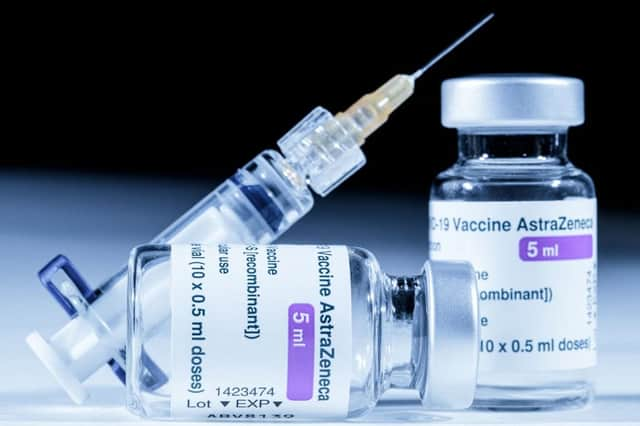WHO is reviewing the health risks of Oxford Covid vaccine - the UK maintains it's safe


The World Health Organisation (WHO) is reviewing the safety of the Oxford/AstraZeneca Covid vaccine after some countries have halted its use due to concerns over blood clots.
WHO vaccine experts are meeting today (Tues 16 March) to review the jab, after several European countries have halted the rollout of the vaccination due to reports of blood clots after it was administered.
Advertisement
Hide AdAdvertisement
Hide AdHowever, the numbers are below those that would be expected in the general population, and both the WHO and the UK’s Medicines and Healthcare products Regulatory Agency (MHRA) have said the jab is safe to use.
‘Many thousands of people’ develop blood clots every year
The Netherlands, the Republic of Ireland, Germany, France, Italy and Spain are among some of the countries that have stopped administering the jab.
However, Joao Vale de Almeida, EU ambassador to the UK, said it was not an EU decision to suspend the rollout of the Oxford/AstraZeneca coronavirus vaccine, but the decision of individual governments.
He told BBC Radio 4’s Today: “It is not an EU decision, these are decisions taken by individual governments.
Advertisement
Hide AdAdvertisement
Hide Ad“Like the British Government, all our governments are worried, concerned and focused on the safety of citizens, when doubts appear for whatever reason I think the principle of caution prevails.”
The European Medicines Agency (EMA) has also reiterated that the number of vaccinated people with blood clots is no higher than the general population.
The EMA said “many thousands of people” develop blood clots every year in the EU and “the number of thromboembolic events overall in vaccinated people seems not to be higher than that seen in the general population”.
The EMA’s safety committee is reviewing the data and working closely with the company, experts in blood disorders and a number of authorities, including the MHRA.
Advertisement
Hide Ad